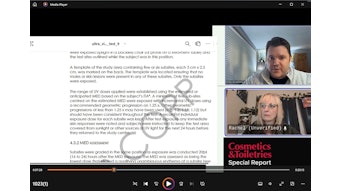!['The most polluting industries, pharmaceuticals and cosmetics, will be required to pay at least [80%] of the cost for micropollutant removal...'](https://img.cosmeticsandtoiletries.com/files/base/allured/all/image/2024/01/scientist_water_monitor_sample_pollutionAdobeStock_297782139.65ba74e958d97.png?auto=format%2Ccompress&q=70&rect=0%2C151%2C2179%2C1227&w=700)
On Jan. 29, 2024, the European Commission (EC) announced a provisional agreement between the European Parliament and the Council revising the Urban Wastewater Treatment Directive. Per the EC, the revised directive will "substantially strengthen the protection of human health and the environment from harmful discharges of urban wastewater" and lead to cleaner rivers, lakes, groundwater and seas all around Europe.
See related: Unilever Eco Claims Under Scrutiny in Greenwashing Investigation
The directive will require the removal of more nutrients and micropollutants from urban wastewater, particularly those from "toxic pharmaceuticals and cosmetics." It will also introduce systematic monitoring of microplastics in the inlets and outlets of urban wastewater treatment plants and in the sludge. The additional monitoring of "forever chemicals" such as PFAS will improve existing knowledge on the dissemination of these chemicals through urban wastewaters.
As the EC explained, the directive will implement the "polluter pays" principle for the first time in the water sector in a specific way: "the most polluting industries, pharmaceuticals and cosmetics, will be required to pay at least [80%] of the cost for micropollutant removal (known as quaternary treatment). This will limit the cost of the new requirements for citizens."
In addition, the directive will now apply to a broader number of areas, as it will also cover smaller agglomerations starting at 1,000 inhabitants. The measure will contribute to the circular economy by improving the quality of sludge and treated wastewater, allowing for more re-use in agriculture and ensuring that valuable resources are not lost, per the EC.
"With the agreement reached today, we ensure not only cleaner water for all Europeans but so much more – better access to sanitation, implementation of the polluter pays principle and energy autonomy," said Virginijus Sinkevičius, Commissioner for Environment, Oceans and Fisheries, in a press statement. "These changes will completely revolutionize the sector and make it more resilient for decades to come.
See also: New Zealand to Ban PFAS 'Forever Chemicals' from Cosmetics










